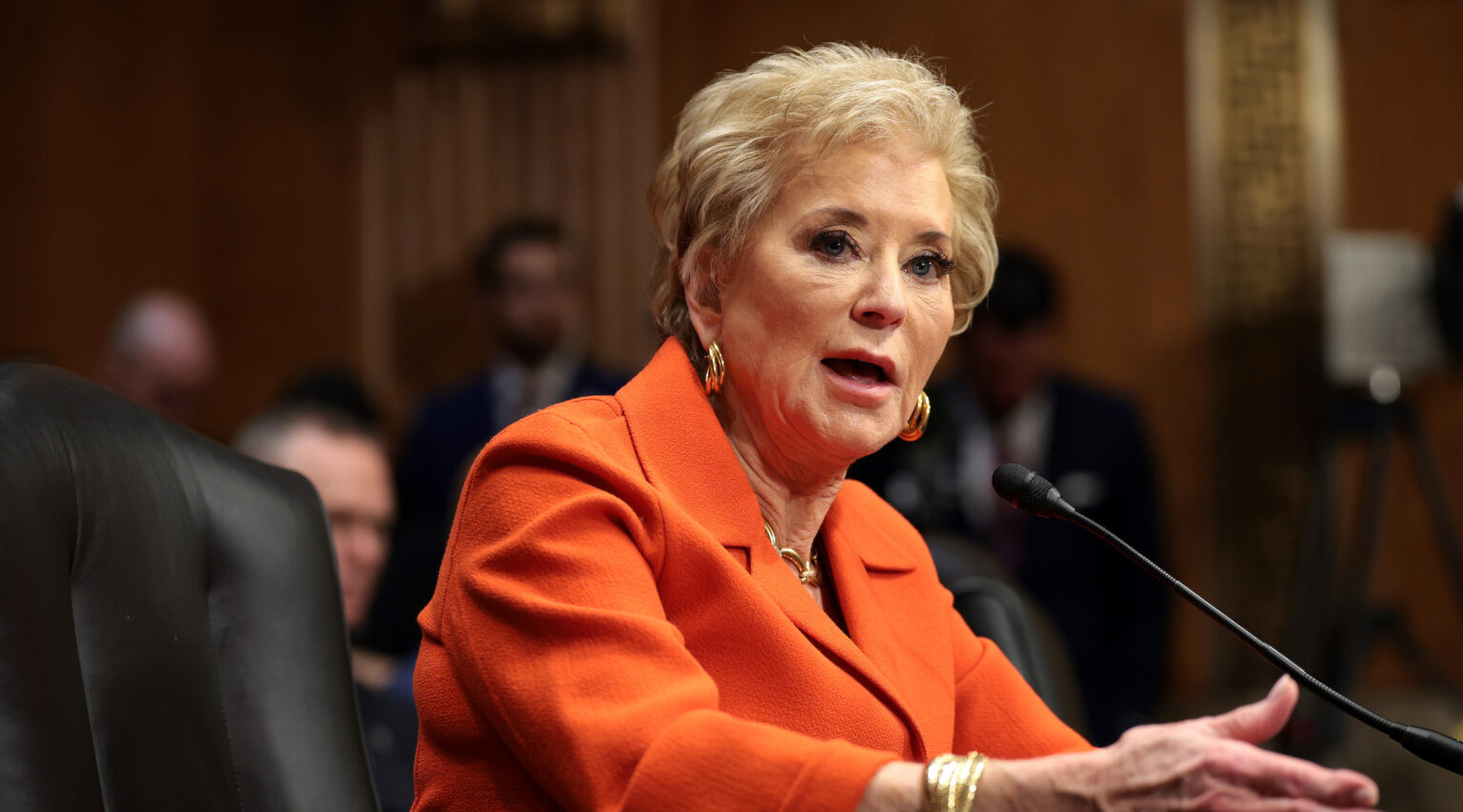Trump's Education Department Plans: What You Need To Know
Is the future of American education being reshaped, or is it being dismantled? The actions of the Trump administration, particularly regarding the Department of Education, raise serious questions about the direction of education policy in the United States.
The dismantling, or at least a significant slimming down, of the U.S. Department of Education has been a recurring theme in certain political circles. Proponents of this approach, including some Trump supporters, argue that states would be able to save considerable funds by eliminating what they view as "suffocating bureaucratic red tape," as articulated by Project 2025. The idea is that by returning control to the states, education can be tailored to local needs and preferences more effectively. This perspective suggests a belief in local control and a skepticism towards federal overreach.
However, the reality, as perceived by many, paints a different picture. Critics fear that such a drastic reduction in the federal government's role could leave many children behind, exacerbating existing inequalities in the education system. Concerns are raised that Americans might fall further behind in the global education race, potentially undermining the nation's competitiveness, a point that even someone like Elon Musk has alluded to in the context of American tech workers. The potential ramifications are far-reaching, touching upon not only academic achievement but also broader societal implications.
The Trump administration's actions to dismantle the U.S. Department of Education have been quite visible. Beginning with significant layoffs, including the dismissal of around half of the agency's employees, uncertainty has been cast over the fate of billions of federal dollars allocated for educational purposes. This includes questions over how, or even if, these funds will be distributed and utilized effectively. The very structure and function of the department are being called into question, with ripple effects across the entire educational landscape.
Moreover, the Trump administration issued an order requiring the Department of Health and Human Services to provide guidance on how states receiving block grants for children and families can use those funds to support educational initiatives. While this might appear to be a redirection of resources, it could also be viewed as a way to shift control and potentially alter the priorities of education funding. This approach is consistent with the broader agenda of decentralization and a focus on state-level autonomy.
The concern is that such massive layoffs will hinder the Education Department's ability to perform duties mandated by federal law. A lawsuit filed in federal court in Boston by states like New York and California underscores this concern, highlighting the practical implications of a diminished federal presence in education.
In Massachusetts, a lawsuit brought by democratic attorneys general seeks to challenge the Department of Educations moves to withhold money. The core of the lawsuit includes civil rights, specifically the rejection of what the federal government terms "illegal DEI practices." This legal action signals the significant resistance to these changes.
The rhetoric, of course, plays a significant role. The Trump administration has often asserted that education policy needs to be "transferred back to the states." This is consistent with the argument that local control is more effective and that the federal government's role should be minimized. The political implications of this rhetoric should not be overlooked, as it can mobilize certain voter bases and fuel the debate about the future of education.
The Trump administration has also been looking at people who can take the charge as head of department, like Lina McMahon, a billionaire. Many believed that such person can support the current government's motive.
The administration's moves have already drawn legal challenges. Democratic attorneys general in 20 states, and the District of Columbia have sued the Trump administration over the layoffs, which cut nearly half of the education department staff. The complaint points out how the department's change in position created chaos. The situation is described as "drastic and abrupt," which, the lawsuit claims, caused confusion and uncertainty for state and local educational agencies.
The narrative surrounding the dismantling of the Education Department is a complex one, reflecting broader debates about federalism, education policy, and the role of government. It is a story that is far from over, with legal challenges, political maneuvering, and the potential for lasting effects on the American educational system.

Trump guts Department of Education, slashing office handling

If Trump guts the Department of Education, low income students are most
How Trump's order to gut Education Department affects Washington state